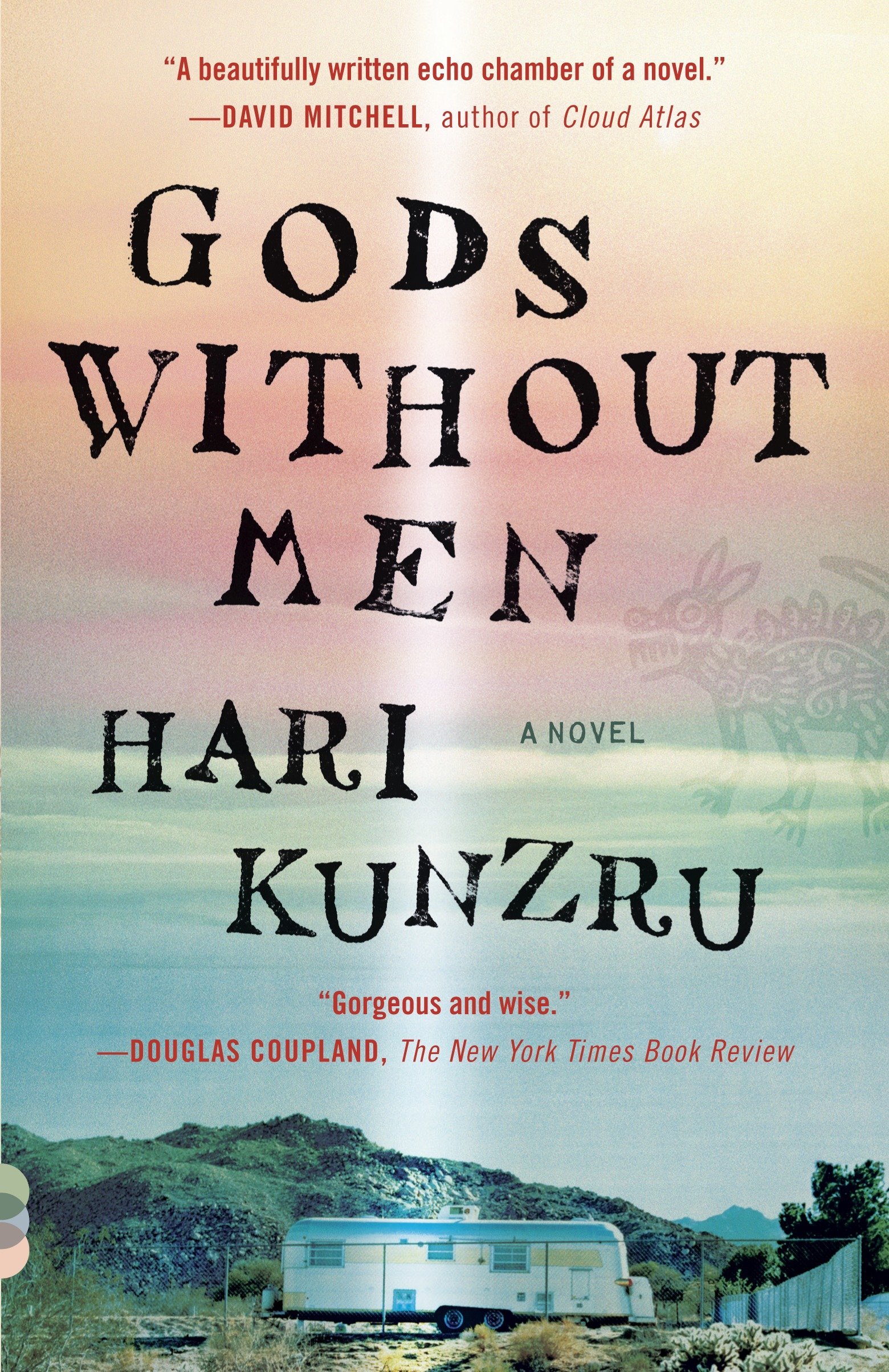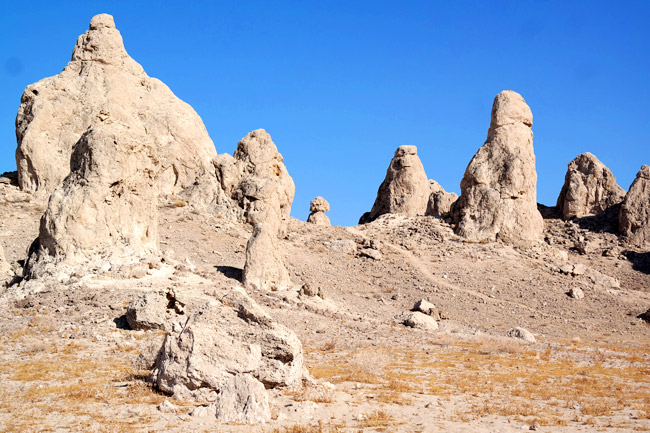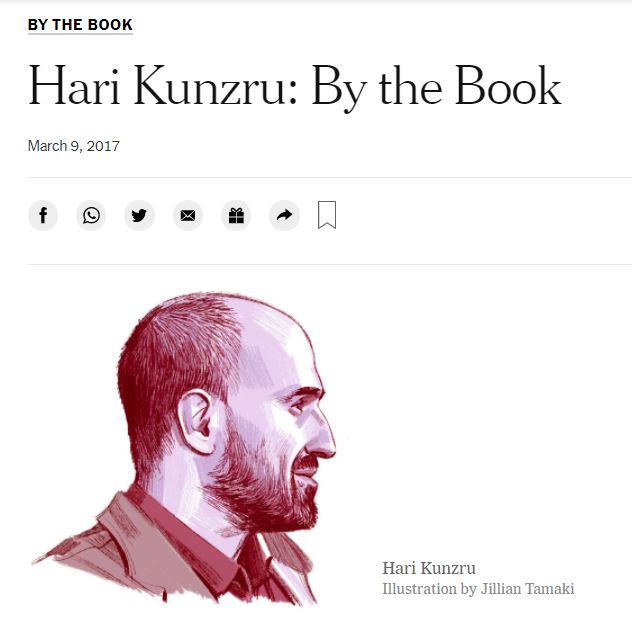
Finished Hari Kunzru’s God Before Men last night. About 4/5ths of the way in, this reader lost heart. Iuspected that Kunzru wasn’t going to tie all his loose ends together. After I finished the novel, I could see that I had not read carefully enough and the loose ends did make sense but I needed another chance. So I started on a second read.
Before doing that I figured out why I was reading this book in the first place. To the best of my knowledge I ran across Kunzru when he was featured in a NYT “By the Book” interview in March 2017. Although this novel is not mentioned, I must have done some checking around and found a used copy online and purchased it.
It sat on my to-read stack until recently.
The first time I read the book, I carefully noted the shifting times of chapters in the back fly leaf. I did so because there was no table of contents. One would have been helpful. Glancing over the shifts you can easily see that most of the story takes place in 2008-2009, since he alternates sections in the past with those.
This time I am catching much more since I recognize characters that he slyly puts in the beginning hundred pages of the book. I should have paid more attention.

After a puzzling quasi Native Indian parable about Coyote learning to cook meth in the desert, the first chapter ends with a character being actually welcomed into a flying saucer by aliens in 1947. It was quite some time before I understood that the character was hallucinating this. On a second read I can see why. It’s presented in way that made me think that maybe this incident actually, somehow, happened and the book was going to explain it.
My concentration wandered during the second chapter of the book which takes place in 2008. . It’s a lengthy description of an English Rock and Roll Band working or failing to work in a studio in L.A. Maybe Kunzru thought readers would be interested in this band, but I found the descriptions of the band struggling and falling apart accurate and therefore discouraging and a bit boring. I didn’t realize until the second read that Nicky, one of the band members, is important to the plot. He ends up driving by himself to the desert and holing up in a little motel near the same spot that the beginning section takes place in.

Place is practically a character in the book.
I just did some poking around to see where this story takes place. There is a rock formation called Trona Pinnacles. “Trona” does not mean three. It is the name of a mineral which results from the evaporation of salt deposits. “Pinnacles” is the word Kunzru uses to describes three mysterious columns of rock that figure into every story in the book that takes place in the desert. Trona Pinnacles is in the Death Valley National Park.
I don’t think Kunzru is being literal in the setting of his story.
In her essay, “That Craft Feeling,” which I mentioned in previous post, Zadie Smith talks about writers who are “macro planners” and ones who are “micro planners.” As you might suspect the latter map out their novels with great planning and detail, the former basically start with the first sentence and write towards the last. Smith is a “micro” planner. Kunzru is probably more of a “macro planner” since this book is very planned and crafted.
I was hoping that was the case. The book wanders around quite a bit depends on an alert reader. I’m not sure I fall into that category.. After I finished the book, I thought about the title which is only referred to in the French epigram at the beginning of the book. “Dans le désert, voyez-vous, il y a tout, et il n’y a rien . . . c’est Dieu sans les hommes.’” which I translate loosely to mean “In the desert, you see, there is everything and there is nothing, it is God without men.” Or something like that. This is a quote from a story by Balzc.
So not only does Kunzru tie it all together there are some interesting points he is making. Time for a second read.
‘Race is a lie’ Hope panel explores race, racism
This is about a local panel at Hope College. I can’t tell if Kevin Kambo’s ideas are silly as they seem (Race is an idol) or if the reporting is at fault, but this discussion seems woefully misguided and ill-informed.
